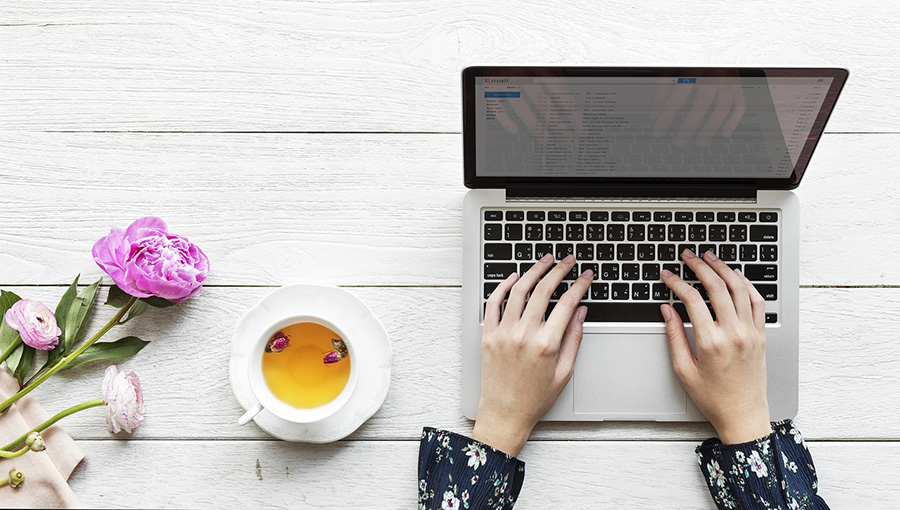In a related article on the dark side of technology, we explored how research is starting to show that smartphone and multimedia use is related to anxiety and poor cognitive function. So, what can we do to avoid digital-related stress? Here are some top tips for managing wellbeing in the digital age.
1: Go on a Digital Detox

Whether this means for an hour, a day, a week or longer… try to find time to switch off from your devices and disengage from social media. At the very least, turning off your notifications and sleeping with your phone in another room, or on aeroplane mode, might be enough to see a positive change. For example, a recent study found that restricting smartphone use in the bedroom improved sleep quality, and increased happiness and quality of life. If you are up for more of a challenge, try taking a significant break from social media. The British Psychology Society recently posted an article on how taking a five day break from Facebook can reduce cortisol levels (a physiological marker of stress); and other studies have found a similar positive effect on more psychological measures of wellbeing.
2: Set yourself clear smartphone social usage boundaries

Many of us use our phones when we’re with our friends and family, watching television, and eating; dividing our attention between our phones and our real life experiences. However, research has shown that being more mindful and generally being more present is good for our wellbeing. So set yourself some ground rules that will allow you to better live in the moment. For example, rules such as no phones at the dinner table, putting on aeroplane mode when you’re out catching up with friends, or no texting between set times (like 10pm-8am) can help encourage you to switch off and live in the now.
3: Re-balance your work and home life

With email in our pocket it’s important to set boundaries in terms of when our working day begins and ends. Try turning off your email notifications and only check your emails at certain times of the day. Decide on the last time you will allow yourself to check your email, and send out any last minute replies… and then let everything else wait until morning. If you are worried what people might think, you could try setting up an auto-reply explaining when you will be checking your emails. This is becoming an increasingly common practice that people are using to manage their wellbeing.
4: Audit and curate your social media feed
![]()
Next time you are on social media, look at the different posts on your feed and be honest with yourself about how they make you feel. If someone’s photos, comments or tweets are making you feel bad, hide or unfollow them (even if they are your best friend; just because someone is great to be around in real life, doesn’t mean the same is true online). On the flipside, actively seek out things that make you feel good about yourself… and follow them, whether that’s wholesome good news stories, educational posts, inspirational quotes, your favourite comedian, or funny cat videos. It is important to minimise the negative while also maximising the positive, as a recent study found that while negative interactions and experiences on social media were related to higher levels of depression and anxiety; more positive interactions and experiences on social media were consistently related to lower levels of depression and anxiety.
5: There’s an app for that; use technology to your advantage
There are literally hundreds of apps out there that have been specifically designed to help promote better physical and mental health. In terms of countering anxiety and stress, the best apps to look for may be those that are based on mindfulness (a meditative therapy that encourages you to become more aware of the present moment, and observe thoughts and feelings without judgment), or Cognitive Behavioural Therapy (CBT; which helps you to identify and challenge negative thoughts, behaviours and beliefs), or a combination of the two.
But if there are hundreds of apps… how do you know which to choose? While there is currently no official system of accreditation for wellbeing apps in the UK, the NHS recently launched a test library for those they recommend. And ORCHA UK has compiled a searchable review of mental health apps that may be able to point you in the right direction. But if you want to know whether an app you find is any good… one of the best ways to find out is to do a little digging yourself. Try searching for the name of the app on Google Scholar to see whether any research has been done into its effectiveness. If you’re an OU student, try searching journals and databases in the online library for the same information. There are many mental health and wellbeing apps (of varying quality) out there… so look for an app that has the data to support its quality and effectiveness.
This resource is part of the 'Wellbeing and Mental Health Collection' created by the Open University in Wales. You can learn more and find courses, articles and other activities on the collection's homepage.









Rate and Review
Rate this article
Review this article
Log into OpenLearn to leave reviews and join in the conversation.
Article reviews